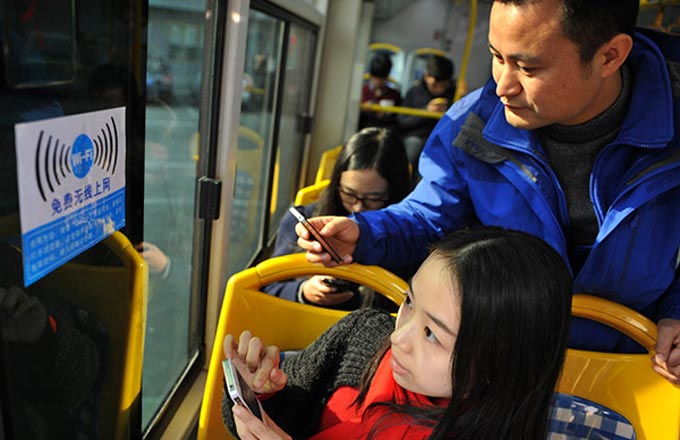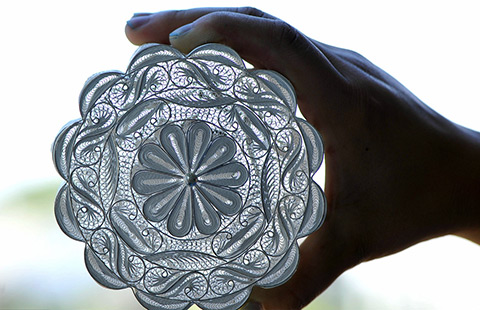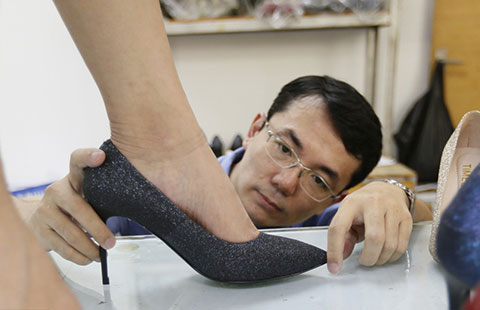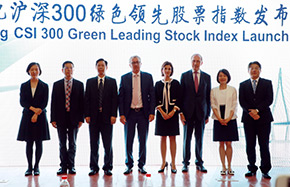France looks to expand beauty-products exports to China
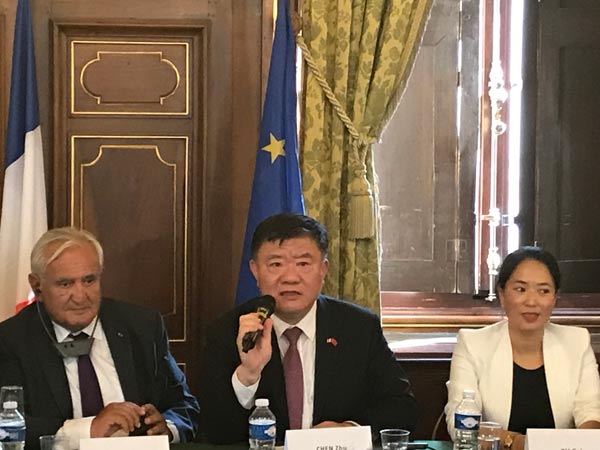 |
|
Chen Zhu (middle), vice-chairman of the Standing Committee of the National People's Congress of China, who is promoting cultural exchanges in Italy and France, and former French prime minister Jean-Pierre Raffarin have pledged on Wednesday to explore cooperation in beauty and fashion sector. [Photo/chinadaily.com.cn] |
French cosmetics companies are drawing up expansion plans to boost their market presence in China.
Chinese and French leaders met on Wednesday to explore future cooperation in the beauty and fashion sector.
Chen Zhu, vice-chairman of the Standing Committee of the National People’s Congress of China, said consumers in China and France are in the pursuit of beauty, though they have diverse ways to express it.
“We should respect this kind of diversity, and it is the diversity that provides possibility to communicate between China and France,” said Chen. “At the same time, we need protect and promote each own traditional beauty to keep cultural independence.”
Chen was speaking on the sidelines of the second Sino-French cultural forum held in the southern French city of Lyon.
The two-day event, under the theme of "The Cultural Silk Road, the Franco-Chinese Confluences", involved sharing insights and experiences in various fields, including culture, art, and education.
Lyon, which was one of the final stops of the ancient Silk Road trade routes, was chosen to host the forum to promote cultural exchanges and highlight the importance of the Belt and Road Initiative, which was proposed by President Xi Jinping in 2013.
Also in attendance was former French prime minister Jean-Pierre Raffarin, who earlier this month arranged a business forum in Paris to boost cooperation with China .
Raffarin said the beauty industry is not only a cultural element, but also closely linked with economy.
“Cosmetic consumption is not only a purchase behavior, but also related to local history, tradition and economic development level,” he said.
Evidens de Beaute, a French company in beauty sector, has already completed its registration in China, and plans to enter the market there by the end of the year.
Charles-Edouard Barthes, the company’s chief executive, said his cosmetic products would target China’s young female market, which tends to favor affordable cosmetics, compared with women over 40 who prefer luxury cosmetics.
Livia Stoianova, founder of the Parisian fashion house On Aura Tout Vu, acts as consultant for some Chinese fashion design companies.
“My company is too small to expand Chinese market by itself,’’ said Stoianova. “We tend to cooperate with Chinese designers who are already familiar with local fashion market, so there are less barriers to entering the sector.”
While China's cosmetics market has been booming in recent years, foreign brands are still the mainstream, with top names including L’Oreal, Olay and Mary Kay collectively accounting for 12.5 percent of retail sales in China, according to Research in China.
Chen Junyu in Lyon contributed to this story.




